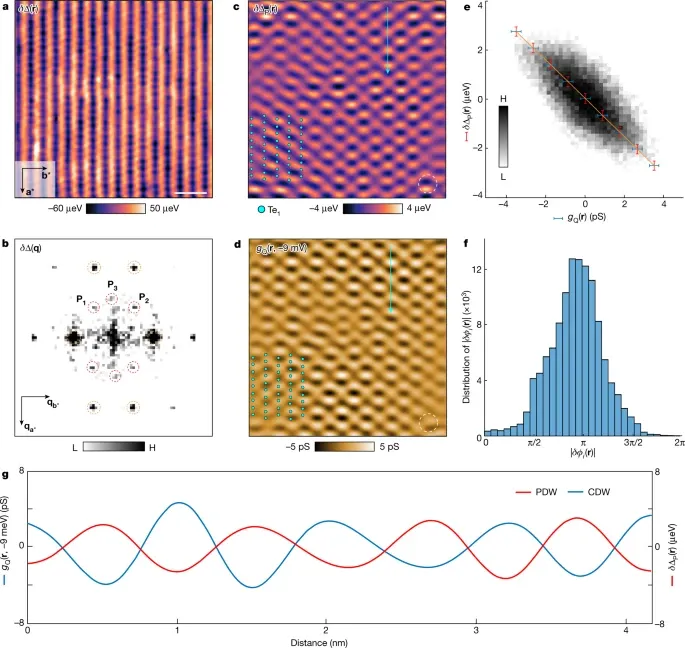An unusual superconducting state observed in the material uranium ditelluride (UTe2) could help overcome well-known challenges in the advancement of quantum computing.
Researchers from the Macroscopic Quantum Matter Group laboratory at University College Cork (UCC) discovered the unique properties, which allow electrons to flow freely without resistance along a kind of quantum waterslide.
The secret sauce, the researchers say, involves electrons joining up in pairs to form a special fluid. UTe2 is special, as some electron duos act differently, forming a crystal structure called a Pair Density Wave within the fluid. This type of electron pairing was first observed in 2016 but remains poorly understood.
And this seems to be a pretty big deal.
"What's exciting is UTe2 seems to be a totally new kind of superconductor," Joe Carroll, UCC PhD researcher, said in the paper that documented the discovery. "Physicists have been hunting for one like this for decades."
The team behind the discovery is hopeful that learning more about UTe2 will help them better understand and break down other superconducting materials. This could be a huge boon to science, particularly in medicine where superconductors are used for various medical devices like MRI scanners. By further unlocking some of the mysteries of these materials, we could see new and improved medical technologies developed

UTe2 appears to be a novel type of superconductor. The electron pairs have intrinsic angular momentum, meaning they rotate as they pair up. If confirmed, this would make UTe2 the first material found to contain an electron Pair Density Wave with this property.
Why should we care about the subatomic hokey pokey going on inside this marvelous material? Well, because the properties of UTe2 are relevant for the development of more powerful quantum computers.
Quantum computers use quantum bits (qubits) to store information. However, qubits are delicate and lose their quantum state easily, limiting computational time. UTe2 may enable a type of quantum computing where qubits can maintain their state indefinitely during computations. This could pave the way for more stable and practical quantum computers.
In other words: No more ephemeral quantum states means reliable quantum computers that stick around long enough to be useful.
The researchers' findings mark an incremental step toward the long-term goal of building advanced quantum computers. While further research is needed, the UCC team's work provides valuable insights into UTe2's fundamental superconducting properties. More broadly, materials like UTe2 are important in understanding how quantum effects can be harnessed for computing applications.
Computing at warp speed could be just around the corner—a far-off corner—and, there’s no need to worry about these physicists hacking your Bitcoin wallet.

